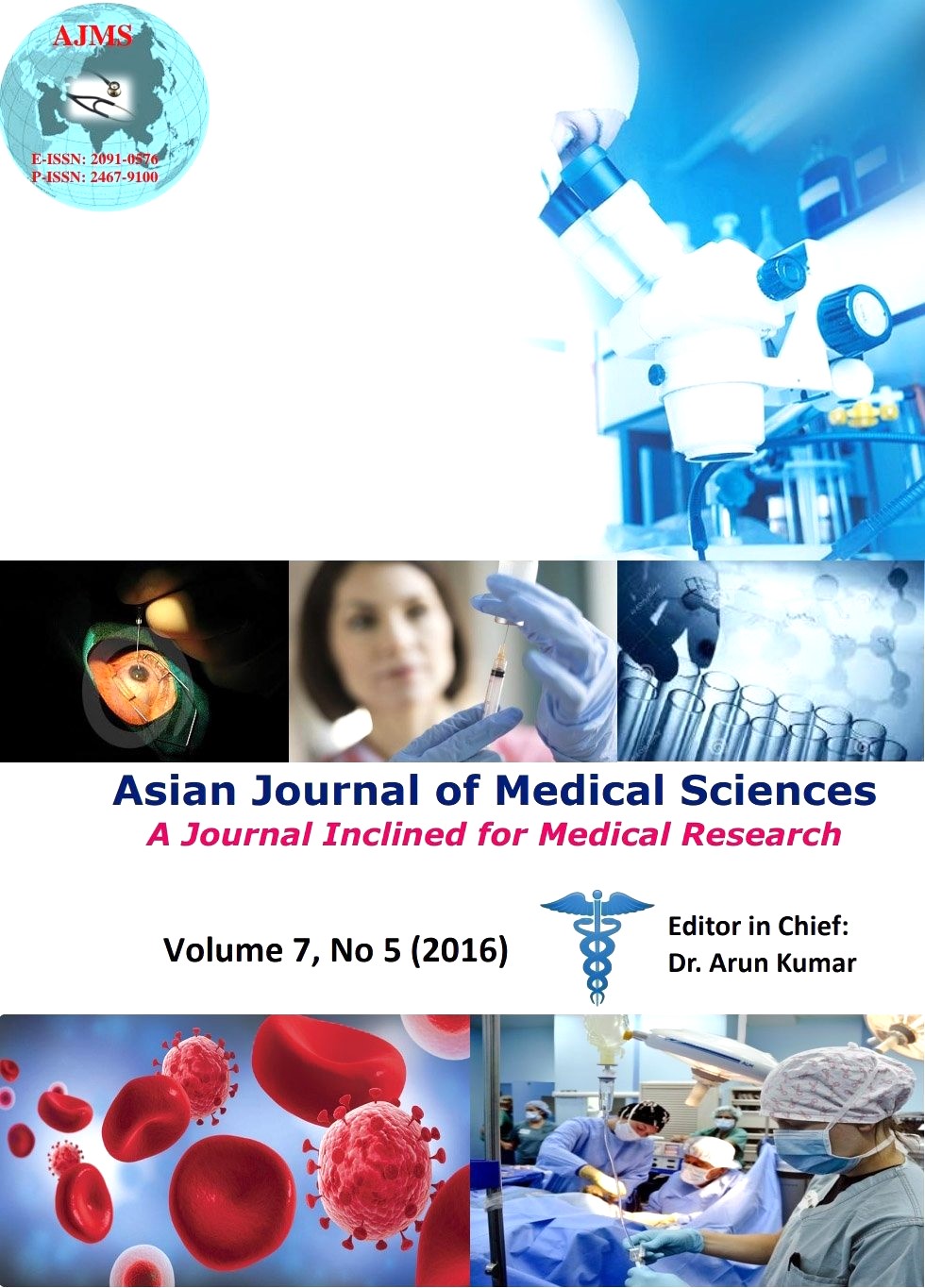Increased plasma H2S levels well correlated with total oxidative stress and total antioxidant defense in type2 diabetes patients.
Keywords:
H2S, diabetes, oxidative stress, antioxidantAbstract
Background:
Diabetes mellitus, a worldwide health problem, is associated with increased oxidative stress and reduced antioxidant defense in the body. The role of hydrogen sulfide and the H2S synthesizing enzymes in relation to type2 diabetes is a recently unveiled field which needs further research work.
Aims and Objectives:
Aim of the study was find out the relationship of plasma H2S levels and H2S synthesizing activity in plasma with oxidative stress conditions in the patients suffering from type-2 diabetes mellitus.
Materials and Methods:
Sixty two patients suffering from type2 diabetes as well as similar number of healthy volunteers were enrolled for the study. Plasma H2S levels and H2S synthesizing activity in plasma as well as total oxidative stress and total antioxidant levels were measured by earlier methods already published from our laboratory.
Results:
The values of FBG, PPBG, HbA1C, fasting Insulin, plasma H2S and H2S synthesizing activity in plasma and TOS values in patients are significantly higher (p< 0.05) than the corresponding values in healthy controls. The median and inter quartile range of TAD values in controls is significantly higher than those of the patients (Mann Whitney U, Z<0.001). Plasma H2S levels show significant positive correlation with TOS values (r= 0.793, P<0.001), and significant negative correlation with TAD values (r= -0.753, P<0.001).
Conclusion:
The current study elucidated that there is significant increase in both plasma H2S levels and the activity of H2S synthesizing enzymes in type2 diabetics and well correlated with the total oxidative stress and antioxidant defense.
Asian Journal of Medical Sciences Vol.7(5) 2016 22-30
Downloads
Downloads
Published
How to Cite
Issue
Section
License
Authors who publish with this journal agree to the following terms:
- The journal holds copyright and publishes the work under a Creative Commons CC-BY-NC license that permits use, distribution and reprduction in any medium, provided the original work is properly cited and is not used for commercial purposes. The journal should be recognised as the original publisher of this work.
- Authors are able to enter into separate, additional contractual arrangements for the non-exclusive distribution of the journal's published version of the work (e.g., post it to an institutional repository or publish it in a book), with an acknowledgement of its initial publication in this journal.
- Authors are permitted and encouraged to post their work online (e.g., in institutional repositories or on their website) prior to and during the submission process, as it can lead to productive exchanges, as well as earlier and greater citation of published work (See The Effect of Open Access).




